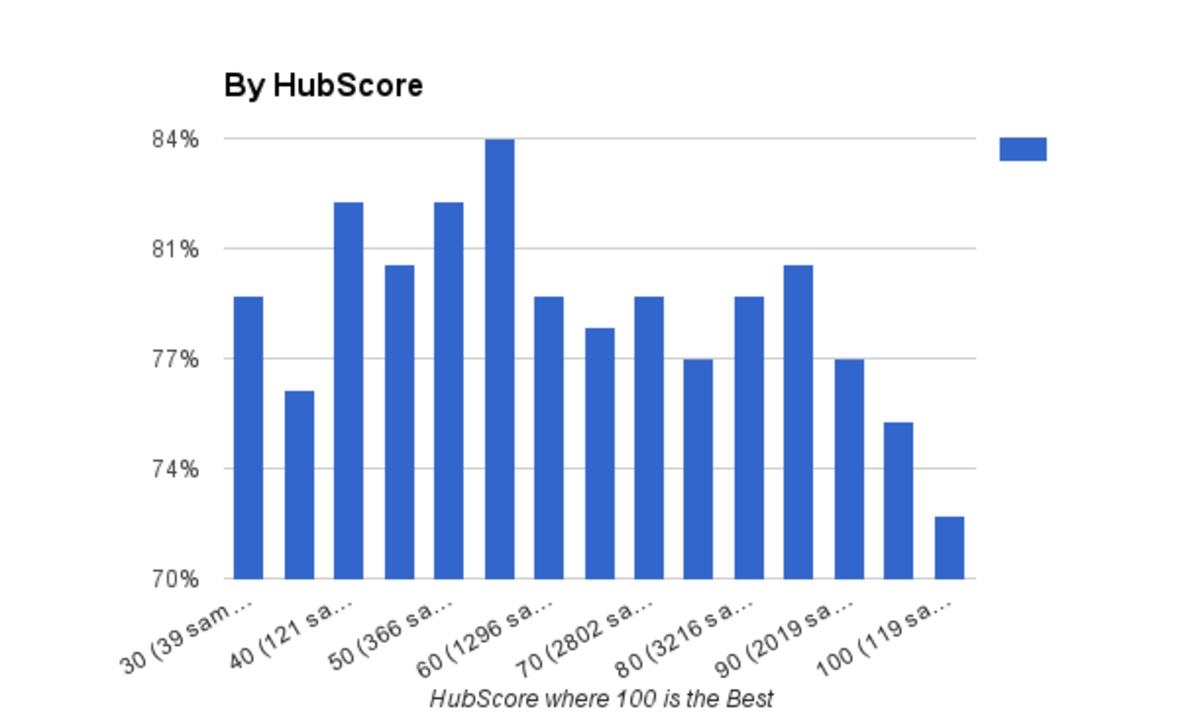How to Calculate Accurately Keyword Density
Keyword density is a word you often hear in about in relation to online writing. Calculate the amount accurately for an article, blog post, or other piece online.


What Is Keyword Density?
The phrase is not as vague or complicated as you may think. Remember when you first started to write online. Did you think, "Nah, I don't need to learn about that term"? Well, turns out that the density is important for Search Engine Optimization (SEO). Yes, another term you likely heard about shortly after beginning to write online
The Definition
Keyword density refers to the number of times you use a specific term or phrase within a web page as a percentage of the total text on that page.
In The Context of SEO
As it relates to SEO, the density helps determine the relevance of the web page to the specific term or phrase. A web page that has a high SEO rank sits closer to the top of search results on Google or other search engines than a page lower on the optimization scale.
Remember that editing your post to improve its relevance to certain key terms is only one factor in improving SEO for that web page. Combine the equation (yes I am getting to it) with writing quality content, increasing number of backlinks, and HTML strategies.
More about Google
Keyword Percentages
Over the years, Google has dropped the number of key terms it "likes" you to use per page. When Google "likes" your page, your link ranks higher in a query using the search engine and you get more views of what you wrote. As Google is the most popular search engine right now, your best bet is to use the percentage it favors.
(That majority rule, however, may soon be under dispute as Yahoo! makes significant changes that may increase its popularity with users).
The consensus for SEO on Google is that your web page have density of 1 to 3 percent. If you go above this number, the search engine may flag your web page as spam and penalize the article by sending it lower in search result rankings. Some SEO professionals argue 2 to 3 percent is preferable; I will leave you to haggle about the 1 percent given the small difference.

Equation
There are separate equations for a keyword and a key-phrase.
Keyword Density (KD):
KD = (Nkr / Tkn) X 400
Nkr is number of times you repeated key term
Tkn is total words in the post
In simple terms, divide the number of times you used the specific term by total number of words (400 in sample above), and then multiply that total by number of words in the text.
Key-Phrase Density (KPD)
When you use a string of words as "key" to the text, you have a key-phrase. An example is customer acquisition services. Here is the equation:
KPD = (Nkr X (Nwp / Tkn) X 400
Nkr is number of times you repeat the phrase in the 400-word text
Nwp is number of words in the key-phrase
Tkn is total words in the post
Of course, you can use a calculator to figure out the answer, if you prefer. The key-phrase equation may have you wondering though about how a three-word phrase takes up a considerable amount of the text when used repeatedly. The issue is whether a phrase like customer acquisition services should become one grouping rather than three separate terms when analyzing density. For this reason, you can use a key-phrase more times than the above formula allows.
The Benefits
Does calculating keyword density take time?
Absolutely. It can be harder to calculate than writing the article. The time you spend on the task, however, is invaluable.
You learn the basics of Search Engine Optimization and improve the ability of your web page to get natural or organic ranking by top search engines such as Google. The effort can translate into more reads of your post and more traffic to your website. That is a valuable return.








